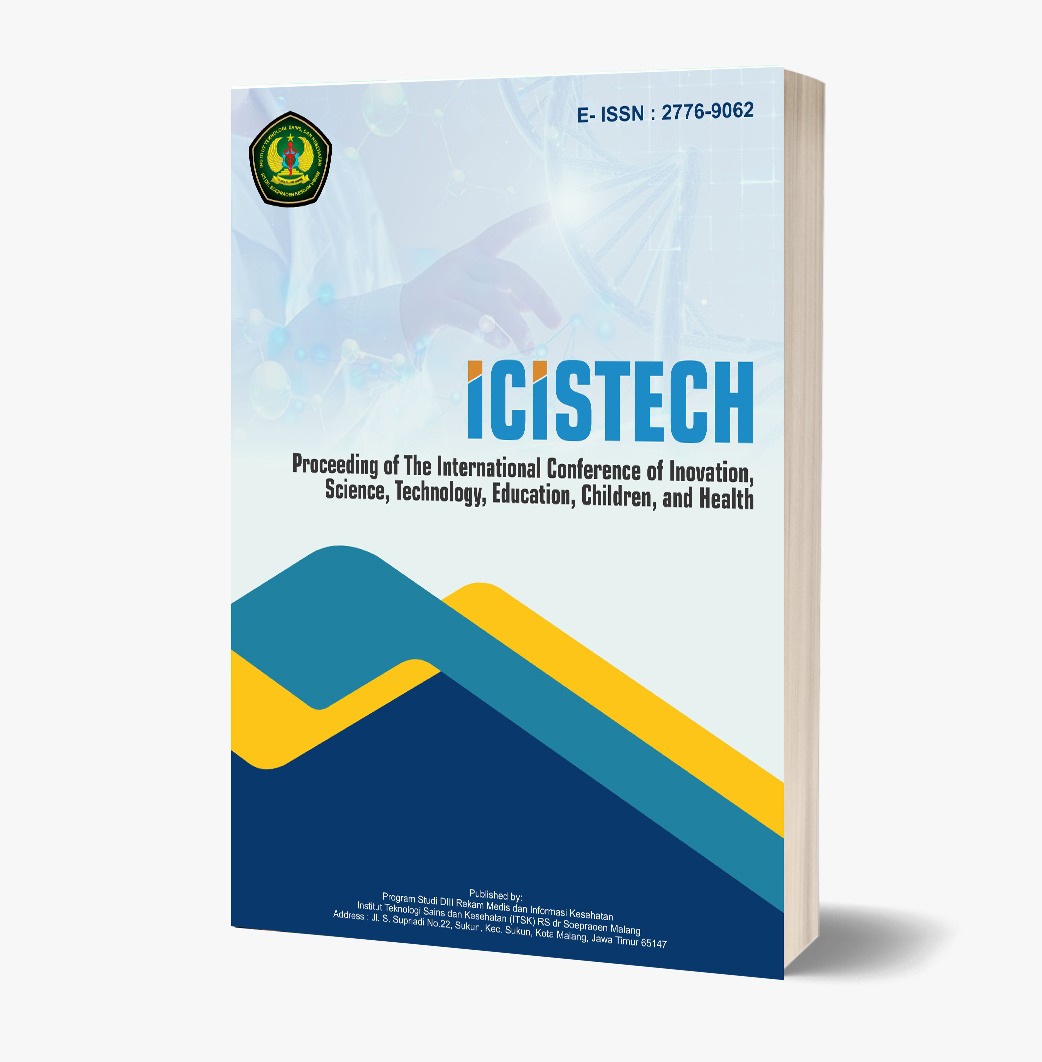Progressive Muscle Relaxation Therapy as an Alternative for Managing Stress During the COVID-19 Pandemic in Yapen Islands Regency
DOI:
https://doi.org/10.62951/icistech.v1i1.103Keywords:
Progressive Muscle Relaxation, Stress, COVID-19Abstract
COVID-19 was first detected in Wuhan, Hubei Province, China. The virus spread rapidly, prompting the World Health Organization (WHO) to classify COVID-19 as a global pandemic. In Indonesia, the virus spread at a fast pace. According to WHO data, there have been 6,535,354 COVID-19 cases globally, with 387,155 deaths. A total of 216 countries, including Indonesia, have been affected by this virus. In Indonesia, there have been 29,521 confirmed cases with 1,770 deaths, while in West Nusa Tenggara (NTB), 798 cases and 22 deaths have been reported. The high number of cases has placed significant stress on the public, both mentally and physically, due to the pressures brought on by the pandemic. This study employed a Quasi-Experimental design with a sample size of 50 respondents, selected using the purposive sampling technique. The study aimed to assess the impact of progressive muscle relaxation techniques on reducing stress levels in the community of Kepulauan Yapen Regency. Based on statistical tests, the average stress score before the intervention was 16.80, which decreased to 11.58 after the intervention with progressive muscle relaxation techniques. There was an average reduction of 5.16 in stress scores, with a p-value of 0.000 <α= 0.05. Conclusion: This study concluded that progressive muscle relaxation therapy has a significant effect on reducing stress levels in the community during the COVID-19 pandemic in Kepulauan Yapen Regency.
References
Arisjulyanto, D. (2017). Pengaruh teknik relaksasi otot progresif terhadap penurunan tekanan darah pada pasien hipertensi di Puskesmas Cakranegara tahun 2016. Berita Kedokteran Masyarakat, 33(11).
Arisjulyanto, D. (2018). The effect of progressive muscle relaxation techniques to decrease blood pressure for patients with hypertension in Mataram. Primary Health Care, 8(4), 10–13. https://doi.org/10.1079/1000309
Ausrianti, R., Andayani, R. P., Surya, D. O., & Suryani, U. (2020). Edukasi pencegahan penularan COVID-19 serta dukungan kesehatan jiwa dan psikososial pada pengemudi ojek online Rizka. Jurnal Peduli Masyarakat, 2, 59–64.
Casey, A., & Benson, H. (2006). Menggunakan respon relaksasi untuk menurunkan tekanan darah (N. Dewi, Trans.). Jakarta: PT. Bhuana Ilmu Populer.
De, S., & Berry, A. (1982). An evaluation of progressive muscle relaxation on stress-related symptoms in a geriatric population. International Journal of Aging & Human Development. https://doi.org/10.2190/5C1R-9D61-YG2N-A7LV
Ilmi, Z. M., Dewi, E. I., & Rasni, H. (2017). Pengaruh relaksasi otot progresif terhadap tingkat stres narapidana wanita di Lapas Kelas IIA Jember. E-Jurnal Pustaka Kesehatan, 5(3), 497–504.
Ivancevich, J. M., Konopaske, R., & Matteson, M. T. (2006). Perilaku dan manajemen organisasi. Jakarta: Erlangga.
Lestari, K. P., & Yuswiyanti, A. (2015). Pengaruh relaksasi otot progresif terhadap penurunan tingkat kecemasan pada pasien pre operasi di ruang Wijaya Kusuma RSUD Dr. R Soeprapto Cepu. Jurnal Keperawatan Maternitas, 3(1), 27–32.
Mona, N. (2020). Konsep isolasi dalam jaringan sosial untuk meminimalisasi efek contagious: Kasus penyebaran virus corona di Indonesia. Jurnal Sosial Humaniora Terapan, 2(2).
Muslimin. (2017). Terapi tasawuf sebagai upaya penanggulangan stress, depresi, dan kecemasan. Ghaidan: Jurnal Bimbingan Konseling Islam dan Kemasyarakatan, 1(1), 1–26.
Nickel, C., Lahmann, C., Tritt, K., Loew, T. H., Wolfhardt, K., Rother, M., & Nickel, M. (2005). Stressed aggressive adolescents benefit from progressive muscle relaxation: A random, prospective, controlled trial. Stress and Health. https://doi.org/10.1002/smi.1050
Özlü, İ., Öztürk, Z., Karaman Özlü, Z., Tekin, E., & Gur, A. (2021). The effects of progressive muscle relaxation exercises on the anxiety and sleep quality of patients with COVID-19: A randomized controlled study. Perspectives in Psychiatric Care. https://doi.org/10.1111/ppc.12750
Purwanto, A. (2020). Studi eksplorasi dampak Work From Home (WFH) terhadap kinerja guru selama pandemi COVID-19. Edupsycouns Journal, 2(1), 92–100.
Ranjita, L., & Sarada, N. (2014). Progressive muscle relaxation therapy in anxiety: A neurophysiological study. IOSR Journal of Dental and Medical Sciences. https://doi.org/10.9790/0853-13212528
Sadat, F., Ahmadi Nejad, N., Golmakani, N., Asghari Pour, N., & Shakeri, M. T. (2015). Effect of progressive muscle relaxation on depression, anxiety, and stress of primigravid women. Evidence Based Care. https://doi.org/10.22038/ebcj.2015.4093
World Health Organization. (2020). Data COVID-19.
Downloads
Published
How to Cite
Issue
Section
License
Copyright (c) 2024 Proceeding of The International Conference of Inovation, Science, Technology, Education, Children, and Health

This work is licensed under a Creative Commons Attribution-ShareAlike 4.0 International License.













